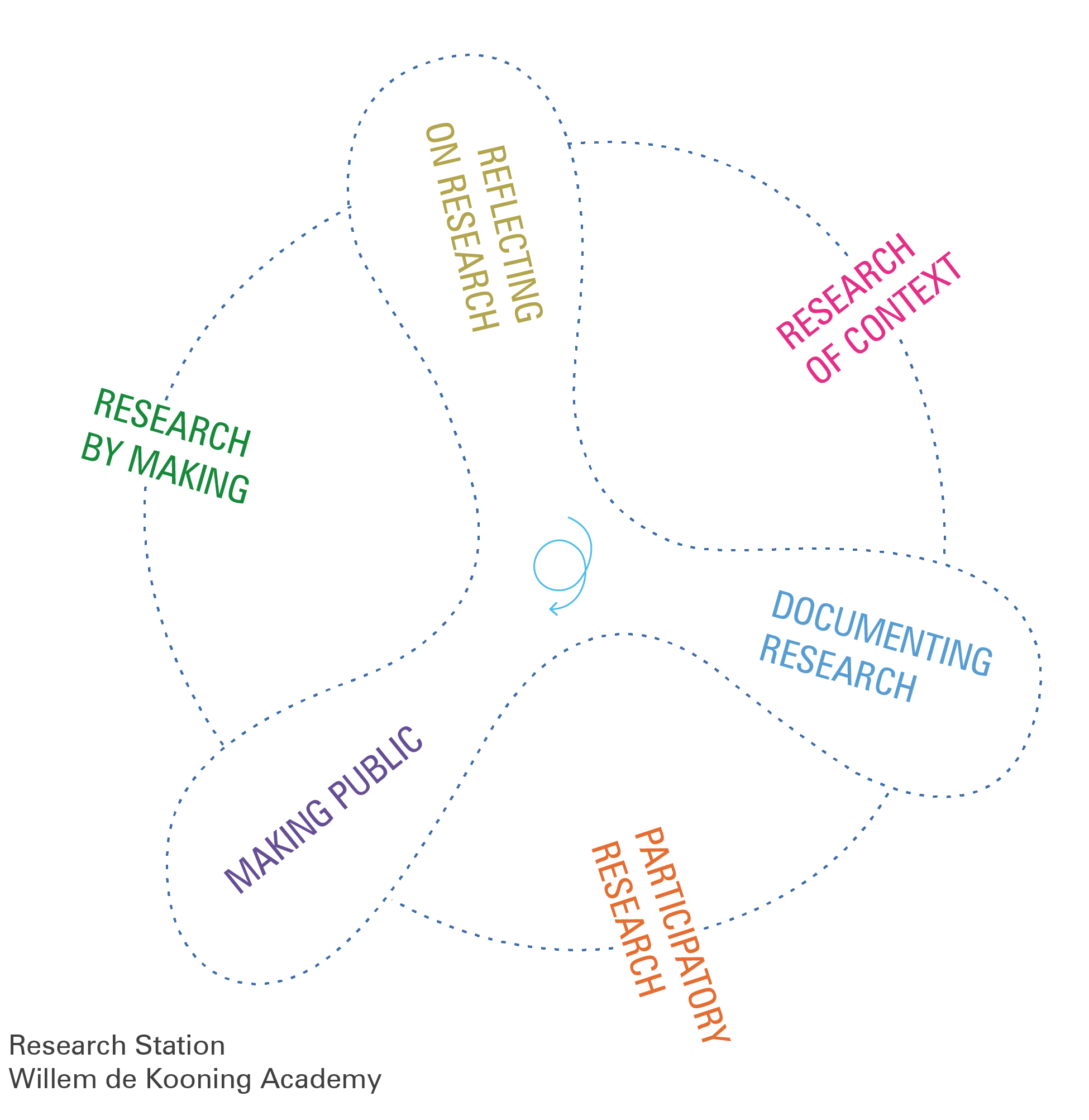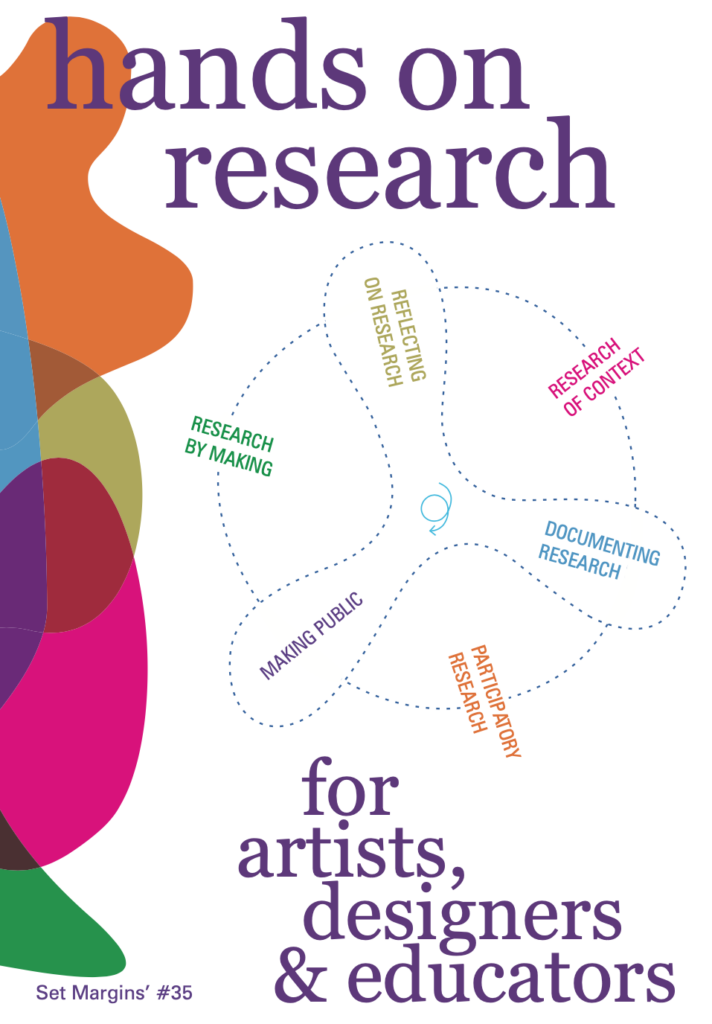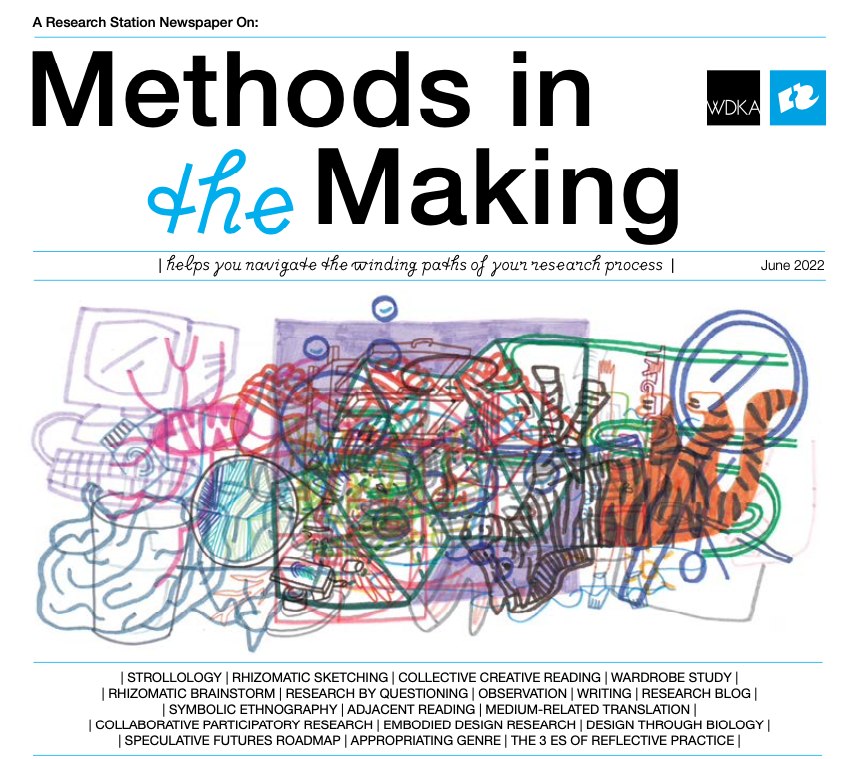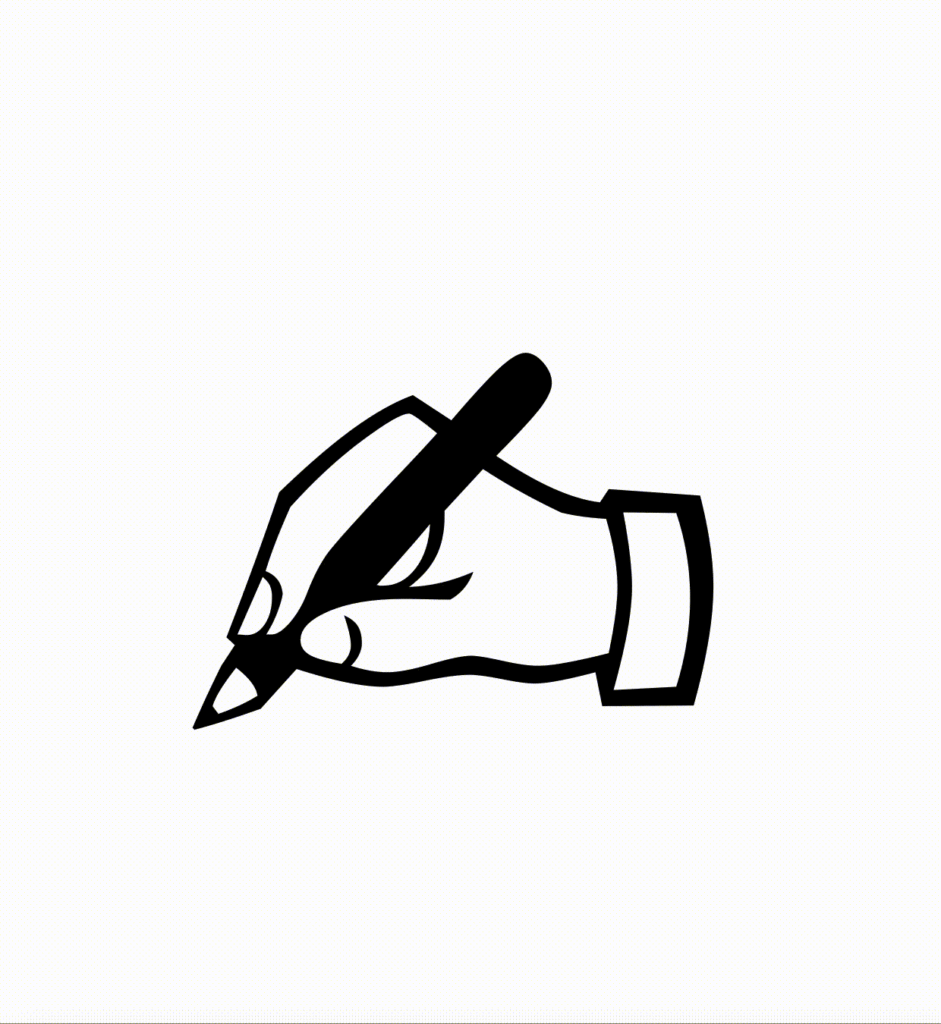Project details
| Researchers |
|
| Project Leader | |
| Affiliated activities |
What could a learning trajectory for research look like? What are the different approaches, methods, and contexts to teaching research within the WdKA? In search for an open yet comprehensive understanding of educating research, the Research Station holds conversations with course leaders and research tutors across disciplines. The conversations are aimed at collaboration and exchange, and will result in an advice for a learning trajectory and a model of research in arts and design.
The Circle of Doing Research is one of the results of the project:
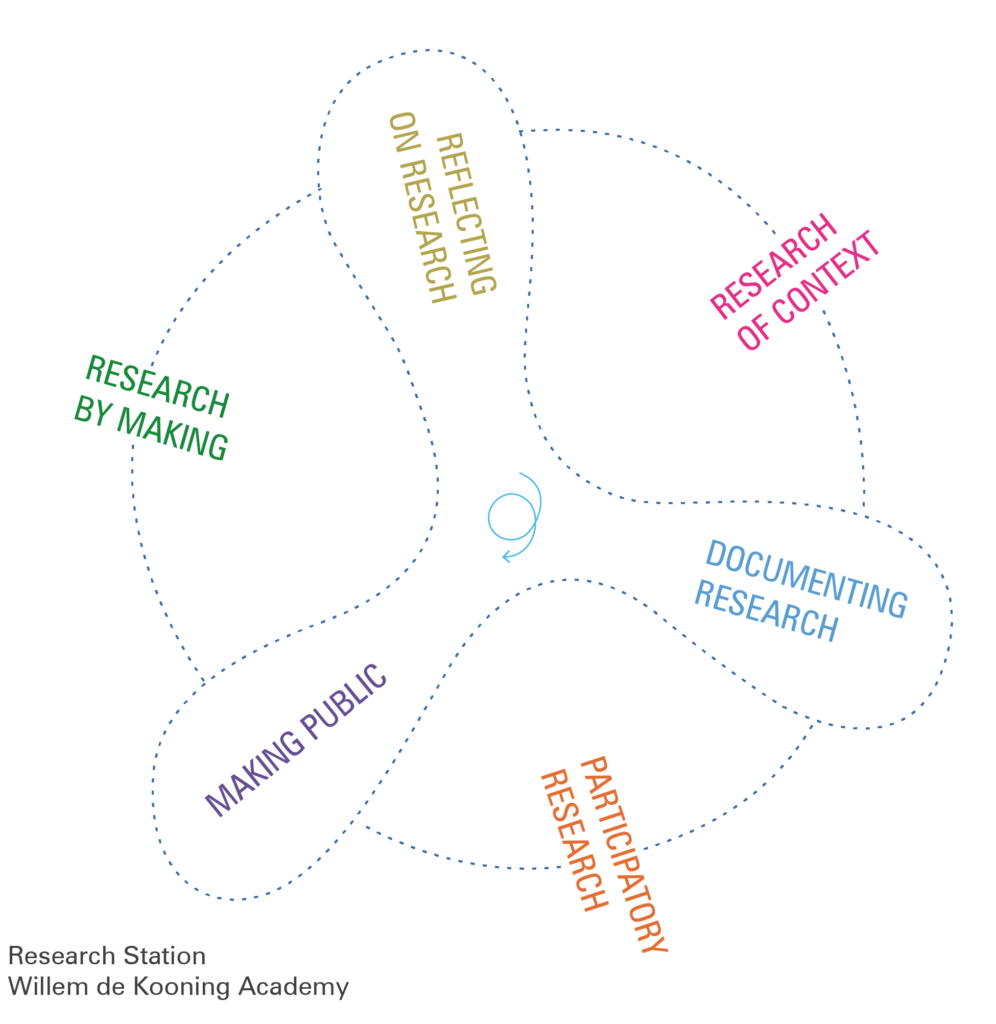
The base:
RESEARCH BY MAKING is at the heart of art and design research. It is characterised by activities such as experimentation and prototyping. It involves iteration and constant reflection on what you are doing, observing and deciding. Making isn’t limited to the production of material artefacts but can also refer to temporal and ephemeral forms. It can be individual or collaborative. Making becomes research when it is part of an articulated and shared process.
RESEARCH OF CONTEXT helps you orientate on a subject and its broader scope and is elemental for reaching in-depth understanding. You can use many different types of sources, both human and non-human, physical and digital, textual, visual and intangible. To understand the context, you might also talk to experts in your field or others who specialise in your subject. Or you can explore the archives, in person or online. It’s also important to consider the social context. What is the bigger picture? What will you need to do to understand it?
PARTICIPATORY RESEARCH is about working with people. They can be collaborators in your project, may have valuable experiences around your topic or belong to a certain audience. Interaction, co-creation and dialogue help bringing out everyone’s knowledge. You can use tangible materials as support, such as conversation pieces, cultural probes or prototypes. Working with others will strengthen your research, but also requires ethical consideration. What do you offer your participants in return?
The spinner:
REFLECTING ON RESEARCH is the drive of every research project. From choosing a topic, methodology or documentation structure, to analysing observations, experiments, other (material) data and deciding on next steps. One’s own position and perspective requires constant reflection as well. How does your background shape what you do? What are your biases? And what ethical considerations does your subject call forth?
DOCUMENTING RESEARCH findings in a deliberate and transferable way is crucial for analysis and reflection. Start documenting right from the beginning of your project and make sure you do it in an accessible and searchable way, for example by using keywords and categories. Doing so will help you to argue, reflect on and present your research both visually and in writing. Collecting, tagging and structuring different types of information are important actions. This will also help you to create a meaningful narrative and work towards publication.
MAKING PUBLIC is part and parcel of doing research. It is only by bringing your research into contact with the outside world that you can fully appreciate its validity and reach. Art and design research in particular is thoroughly connected to the public. Making public involves writing, designing, organising and presenting your research in fitting media and spaces. This process doesn’t have to wait until the end of your project but can be an integral part of it.
The Circle of Doing Research is licensed under Creative Commons Attribution-NonCommercial-ShareAlike 4.0 International (CC BY-NC-SA 4.0).
Research Station, Willem de Kooning Academy, 2022.
